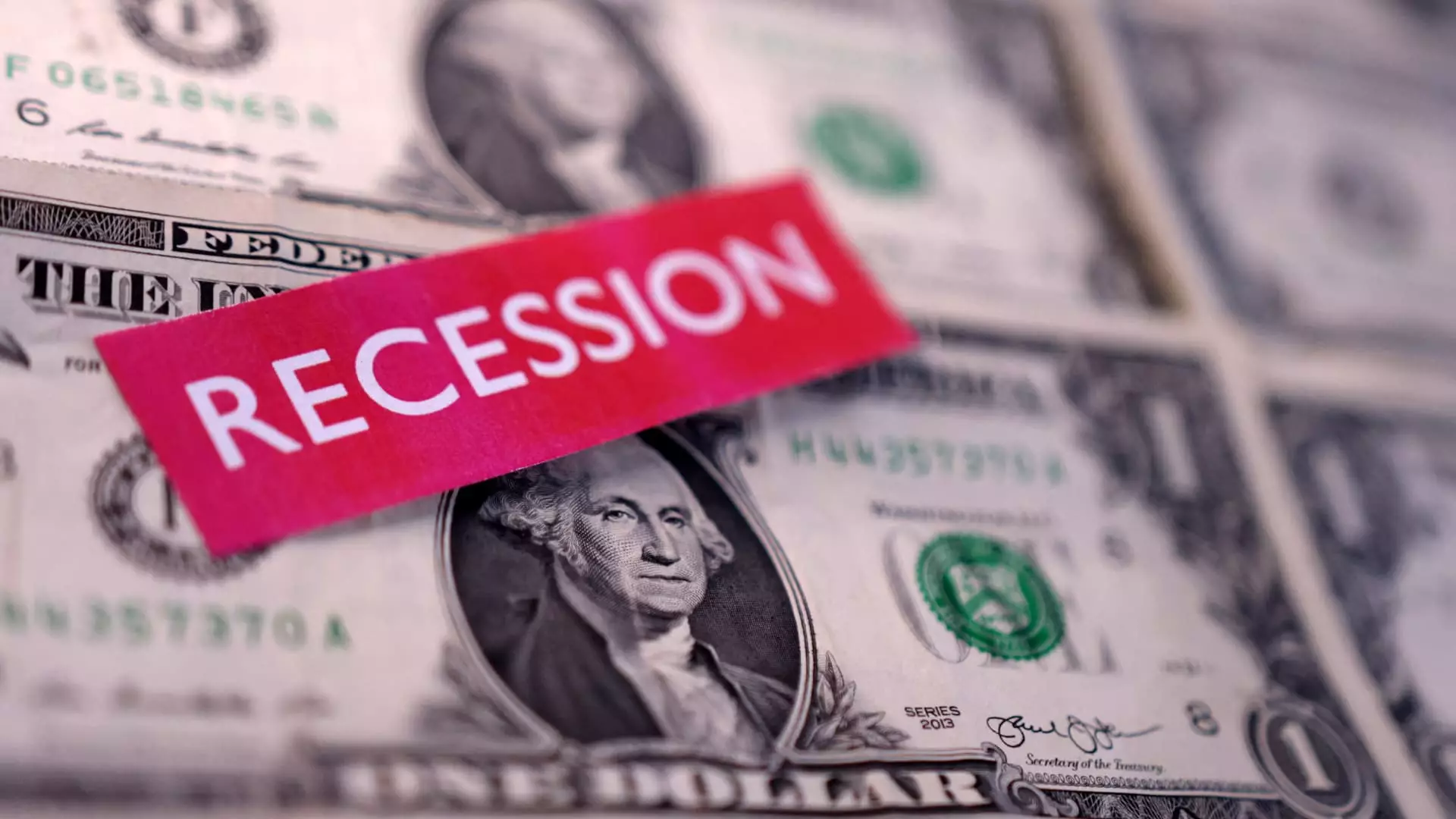The United States economy is at a dangerous crossroads, and a recent Deutsche Bank survey indicates that the likelihood of entering a recession is nearly a toss-up—around 50%. This alarming statistic reveals a deepening anxiety among both consumers and business leaders about the economic future. As we navigate through uncertain times, the survey’s findings starkly contrast with the prevailing narratives of economic strength. Why are the markets reacting with such trepidation despite relatively low unemployment and continued, albeit slower, growth? This dissonance speaks volumes about the fragile state of trust in the economic recovery.
Federal Reserve Chair Jerome Powell’s confidence in the overall health of the economy appears increasingly misplaced. While he insists on the presence of “significant progress” since the pandemic’s apex, one has to wonder: is this the same “progress” that could lead to complacency? Lowered projections for GDP growth stand at a mere 1.7%, representing a stark contrast to the vibrant days of yesteryear. Such a growth prediction would mark the worst rate since 2011, presaging a sobering realization: the economy may not be as robust as it seems on paper.
Inflation and the Dreaded Stagflation
Adding to the gloominess, the Federal Reserve has also cautioned that core inflation is projected to rise to 2.8%, significantly beyond the 2% target. The shadow of stagflation looms large, a term that conjures memories of the economic malaise that plagued the nation in the early 1980s. This condition, where inflation refuses to budge while growth stagnates, raises provocative questions about fiscal policy and the Fed’s ability to tackle potential crises head-on.
Leading voices, such as bond expert Jeffrey Gundlach, heighten the urgency of the situation. He estimates the recession’s probability to be between 50% to 60%, underlining the gravity of market sentiment. The anxiety coursing through financial markets has propelled conversations about tariff policies into the limelight, illuminating their potential repercussions on the economy’s viability. Are we to believe that mere policy adjustments could spiral into full-blown economic adversity?
Market Reactions: A Ticking Clock
This atmosphere of unease is compounded by the fear that the Federal Reserve might face a delicate balancing act: to stimulate growth without igniting further inflation. Such a dilemma will require strategic navigating through complex waters, and as the clock ticks, investors grow fidgety. According to Morgan Stanley, we are standing at the edge of an “uncertainty shock,” propelled by fluctuating tariff strategies. The notion that the economy could plunge into stagflation has investors on high alert, challenging the optimistic rhetoric that has mostly dominated the discourse surrounding economic growth.
UCLA Anderson’s prediction of a “recession watch” heralds a significant shift in sentiment. Their analysis underscores that while a downturn may not be unavoidable, aggressive policies could precipitate a much graver scenario. It raises the question: is this an alarm bell that resonates enough to spur policy changes? If the unintended consequence of economic decisions leads to stagnation, we could witness a new wave of discontent echoing throughout the fabric of society.
The Illusion of Control
As we grapple with these concerns, one must contemplate whether we, as a society, are addressing the root causes or merely skimming the surface of a far more complex issue. Do policymakers genuinely believe that their interventions can reverse deeply ingrained economic challenges, or are we grasping at straws?
The economic landscape is riddled with challenges, but perhaps the most pressing question is whether we will choose to respond by implementing corrective measures or rest on the laurels of a misguided sense of stability. As the stakes rise, each decision made in the halls of power will not only influence markets but will have long-lasting implications for the American public at large.
This intricate interplay of uncertainty and potential policy missteps creates an environment ripe for discontent. Each passing day heightens the urgency for informed dialogue and strategic foresight. If we fail to address these concerns head-on, we may find ourselves grappling with a harsh reality sooner than we anticipate.


Leave a Reply